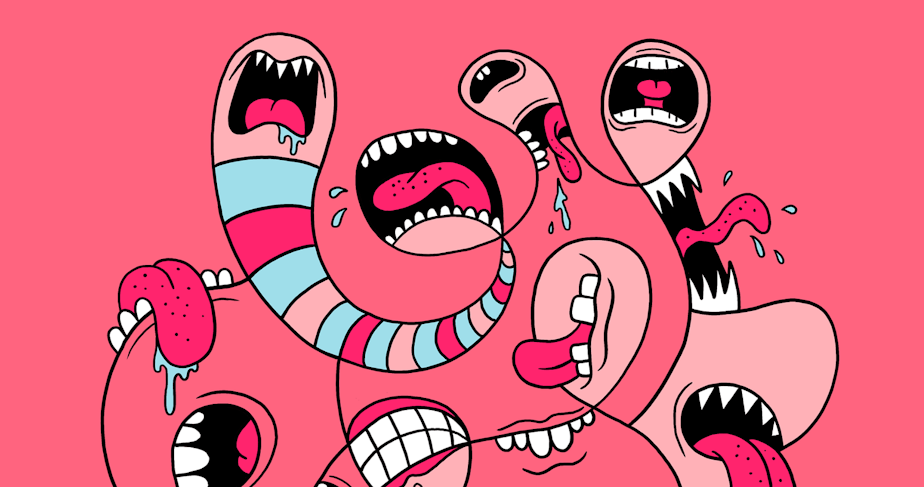Cracked teeth: Covid stress is getting to a lot of us

People are so stressed out that they are grinding their teeth until they crack.
Fr. Steven Clark lost one molar and a canine during the pandemic.
He had been grinding his teeth, he said, distraught by the virus spreading across the globe, and what it would mean if his congregation in Silverdale, Washington, came together, and someone got sick.
“I am a priest, and I am responsible for the safety of my congregation,” Clark said. “If one of them died, it would be on me.”
Cracked teeth and grinding are way, way up since the beginning of coronavirus pandemic. The American Dental Association reported in October that 63 percent of dentists noticed more cracked teeth since March 2020. The dental association has been surveying 1,500 dentists since the start of the pandemic.
Linda Fukuda, a dentist of more than 30 years in Seattle’s Greenwood neighborhood, realized that grinding had become a problem when she took note of all the mouth guards being delivered to her office.
Sponsored
“People are grinding their teeth from chronic stress,” Fukuda said. “I’ve never seen this before. And I have never recommended so many night guards. I'm telling everyone to get night guards.”
“The damage is cumulative. So you might not break the tooth, the first time you grind, it just adds up.”
Fukuda explained what’s happening: “Regular chewing is 20 to 30 pounds of force on your teeth with food acting as a buffer between the teeth,” she said. “But when you grind your teeth, it's like 200 to 300 pounds of force. It's enough to crack a walnut.”
Teeth are not a muscle, Fukuda said; they don’t get stronger with exercise. “They just get weaker and weaker the more you traumatize them,” she said.
Cracked teeth can result in tooth pain – for starters. A crack can expose nerves inside a tooth, resulting in a patient being sent to a specialist for a root canal.
Sponsored
I mentioned the cracked teeth problem in KUOW’s Today So Far newsletter, and a dozen people wrote in.
Karen Daubert, a former dental hygienist, wrote in that she used to have perfect teeth. "Then came Covid, a cracked tooth (well there was a macadamia nutshell involved as well) and grinding," she said.
She's had a root canal and a crown and is hopeful for better times ahead.
Anni Shelley of Wedgwood wrote that she has been "a champion teeth-grinder for decades," although it got worse during the pandemic.
"I have been wearing a night-guard religiously for decades, but since the pandemic, I have resorted to sometimes wearing a day-guard," she said. "I have more chips in my teeth thanks to all the gnashing during Covid."
Sponsored
Back in Silverdale, at Saint Innocent of Alaska Russian Orthodox Church, Fr. Steven Clark said no one died or got sick from attending church.
Still, he said he may lose two or three more teeth. “My teeth are a mess,” he said. He said a childhood fever got his adult teeth off to a rough start, because they came in without enough enamel.
Clark, who is 66, does not have dental insurance. “It's possible that if I had, they might have been savable, but I don’t, and they’ve departed,” he said. “There’s maybe two or three others that might go the same way.”
For now, he said, “The plan is to breathe, and take as good care as I can of what I have left.”




